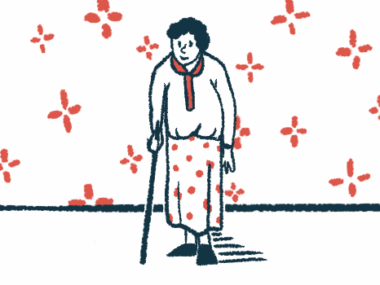Should I stay or should I go now (to the doctor)?
A columnist gets sick and asks fellow 'CADdies,' 'Do I need to go to the doctor?'
Written by |

It didn’t surprise anyone that on Dec. 11, 2019, I was attending another school band concert, given that my husband, Mike, is the band director. But this particular concert was memorable not because of the music, but for the familiar burning tickle in the back of my throat. It presaged at least a week of misery. I was developing a cold.
I went home and climbed into bed. I knew I’d be uncomfortable for a while, but I had no reason to expect anything worse than a cold. That was a Wednesday night; by that Saturday, I was in total misery. My chest ached, breathing made me very tired, and I had no energy. I have cold agglutinin disease (CAD), so I solicited advice from fellow CAD patients in a Facebook group: Do I need to go to the doctor?
I really didn’t want to do that. I live in Indonesia, and doctors in this part of the world have rarely, if ever, treated someone with CAD. They aren’t familiar with the challenges we “CADdies” face, and laboratories aren’t aware of the need to keep blood warm.
I faced a dilemma: I didn’t want to stay home and suffer, but I also didn’t want to travel to see my usual doctor — which would take 50 hours and involve crossing several international borders — unless I truly needed to. Additionally, I wasn’t sure if I had a CAD-related ailment or something else. That often doesn’t matter because CAD affects recovery times and is an adjunct to a primary condition.
Deciding whether to travel
I read the advice from the online community and began weighing it against what visiting my CAD doctor would entail. In the “Go to the doctor” column were factors such as stopping the illness early as well as quality, specialized, and knowledgeable healthcare from a clinic that had seen me before.
In the column against visiting the physician were the debilitating challenges of travel, along with its high cost and the probability that my cold was just that — a simple cold. If I were going to invest so many resources, I wanted to make sure the trip was necessary. I had no confidence in either decision.
I ended up doing what I often do: I dithered. (I’m a good ditherer.) I slept on the decision. I slept through the teachers’ Christmas banquet. I slept through Christmas. I drowsed through Dec. 29, only rousing enough to tell my husband, “Happy birthday. I’m too sick to bake a cake. Good night.”
School started again, and my husband stopped being at my beck and call. I finally got somewhat better. But even by late January, I still wasn’t venturing outside.
Then, at long last, in February, I made a tentative start outdoors. My dithering had paid off. I didn’t need to return to the States for treatment. Good choice!
How things played out
Was it a good choice, though? CADdies have a compromised immune system. That makes me more susceptible to diseases, particularly latent ones from childhood that lurk in the shadows, waiting to clutch at me when I’m vulnerable. I’m thinking of the varicella-zoster virus, which attacked me in childhood as chickenpox.
This time, though, the virus had manifested itself in its most painful and virulent form, shingles. I’ve learned that shingles is an opportunistic ailment, lying in wait until the body is stressed and the defenses are low. Although the cold had completely resolved around the beginning of February, the pain of the shingles three weeks later let me know how vulnerable to disease my body is.
Did the first, the cold, cause the second, the shingles? Would the shingles have been avoided if I had returned to the States? I’ll never know the answers to these questions.
When I realized I had shingles, I no longer questioned whether I should return to the U.S. to see the doctor. My annual checkup with him was scheduled for late May. I knew that shingles, although excruciatingly painful, was self-limiting and would go away on its own. I didn’t need to make a special trip and resolved to travel when school ended.
With the clarity of hindsight, the health decisions I made at the time were the correct ones. The cold that lasted so long eventually cleared up. The shingles departed, leaving only a few scars and a deep memory. My bloodwork at my checkup revealed I’d lost some red blood cells, which was easily treated with rituximab. I also had my antibodies checked to learn if the December cold was actually COVID-19. (I’d traveled through Hong Kong just before becoming ill.) It wasn’t.
Would I make the same decision again? I don’t know. Let me dither on that for a while.
Note: Cold Agglutinin Disease News is strictly a news and information website about the disease. It does not provide medical advice, diagnosis, or treatment. This content is not intended to be a substitute for professional medical advice, diagnosis, or treatment. Always seek the advice of your physician or other qualified health provider with any questions you may have regarding a medical condition. Never disregard professional medical advice or delay in seeking it because of something you have read on this website. The opinions expressed in this column are not those of Cold Agglutinin Disease News or its parent company, Bionews, and are intended to spark discussion about issues pertaining to cold agglutinin disease.








Leave a comment
Fill in the required fields to post. Your email address will not be published.